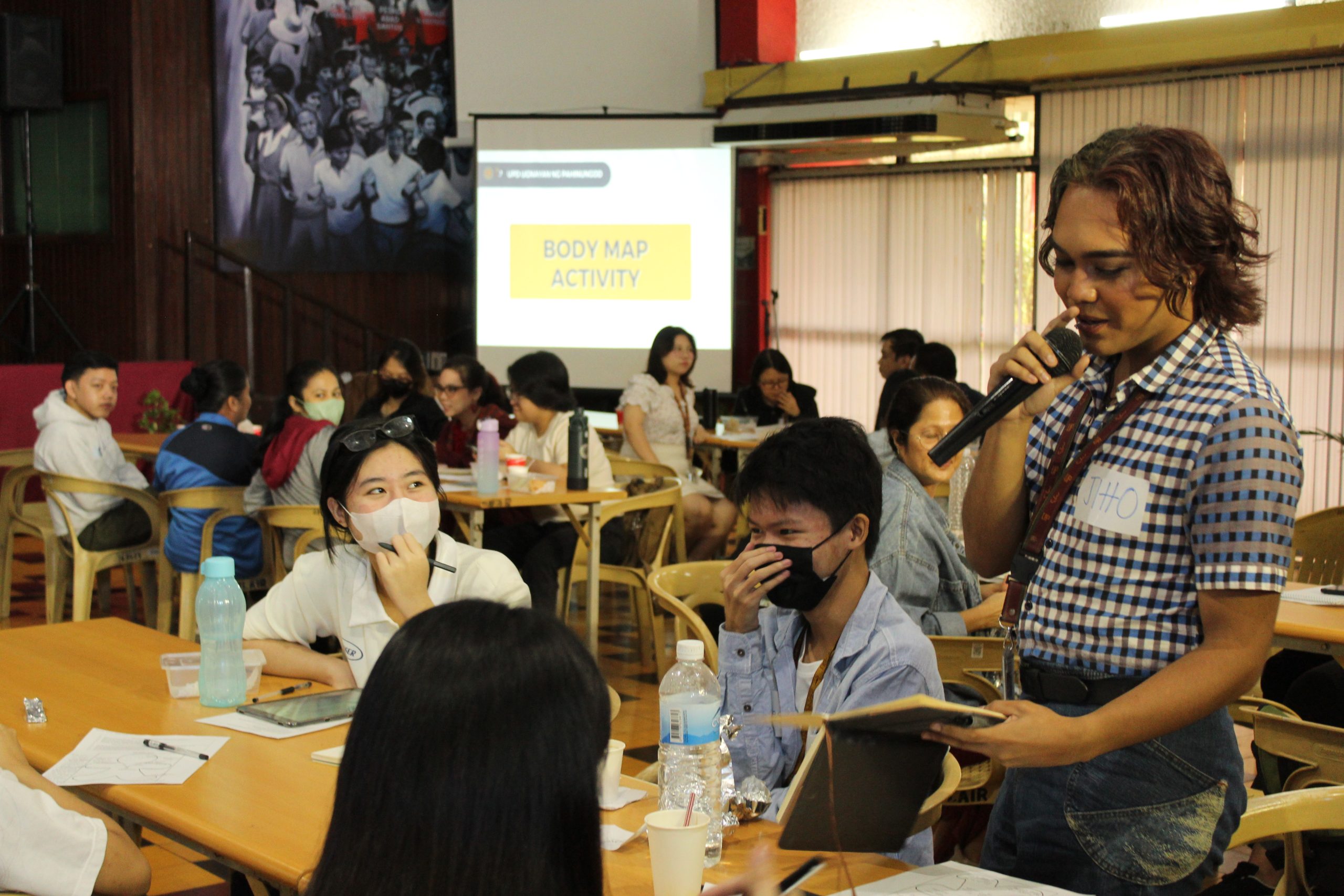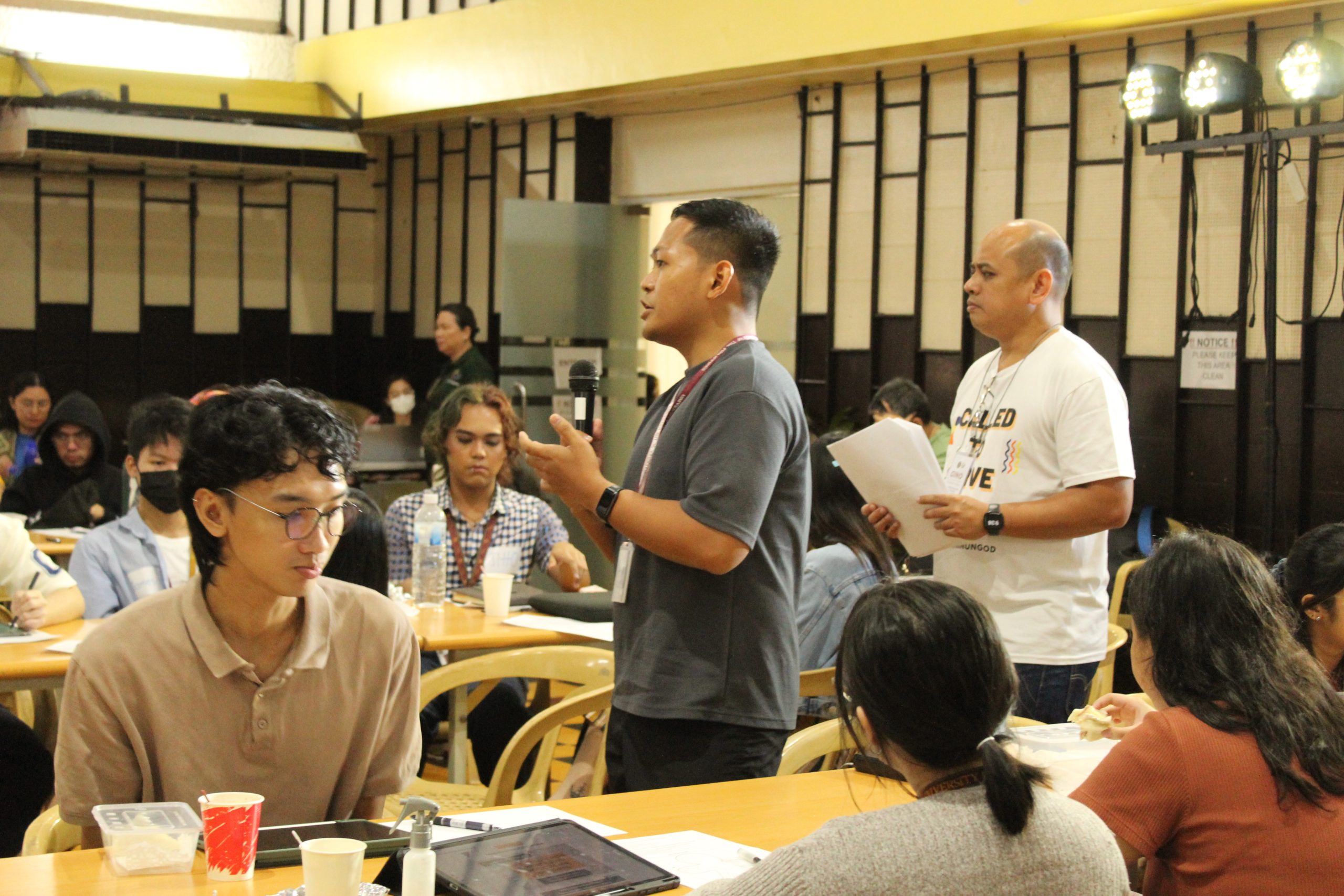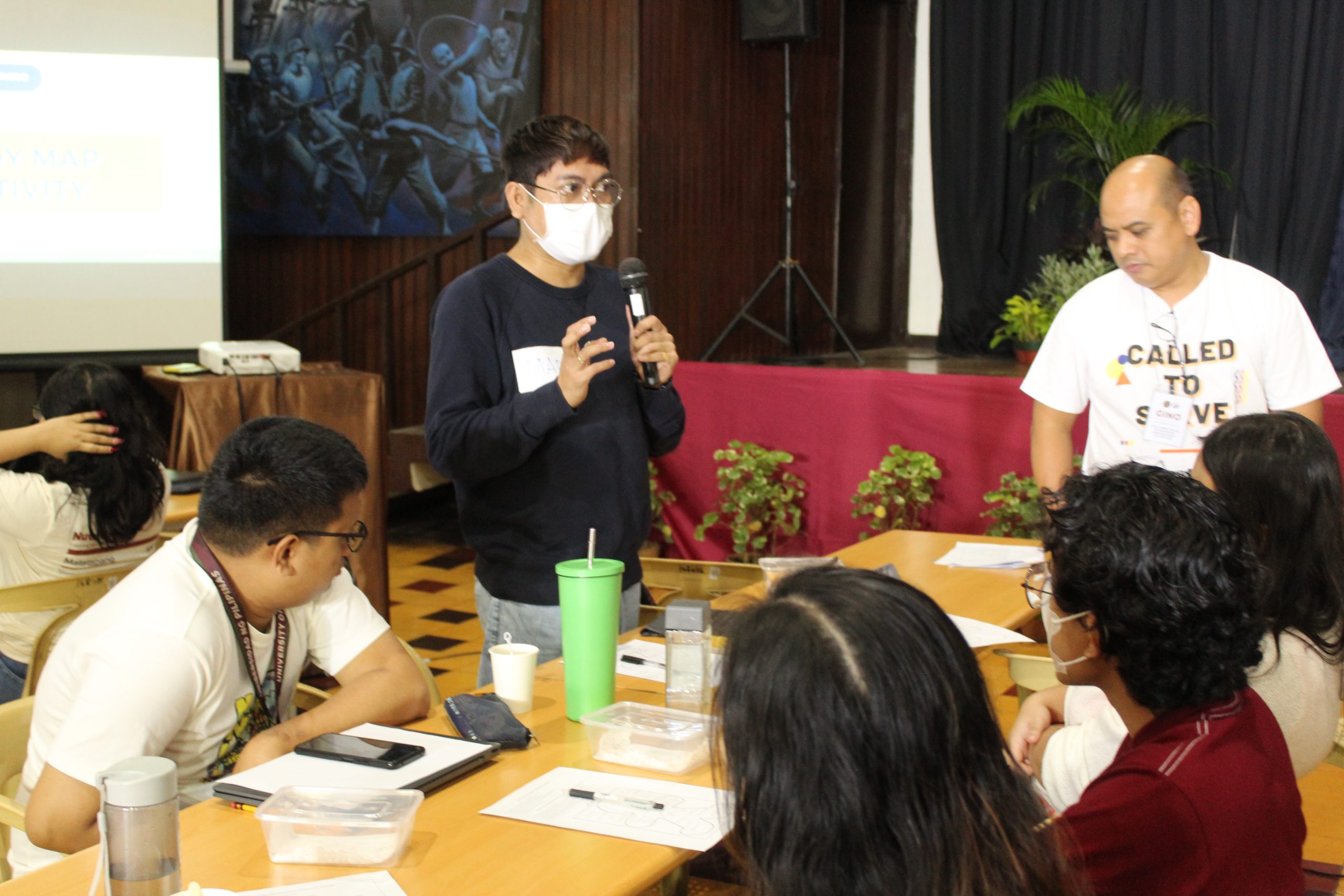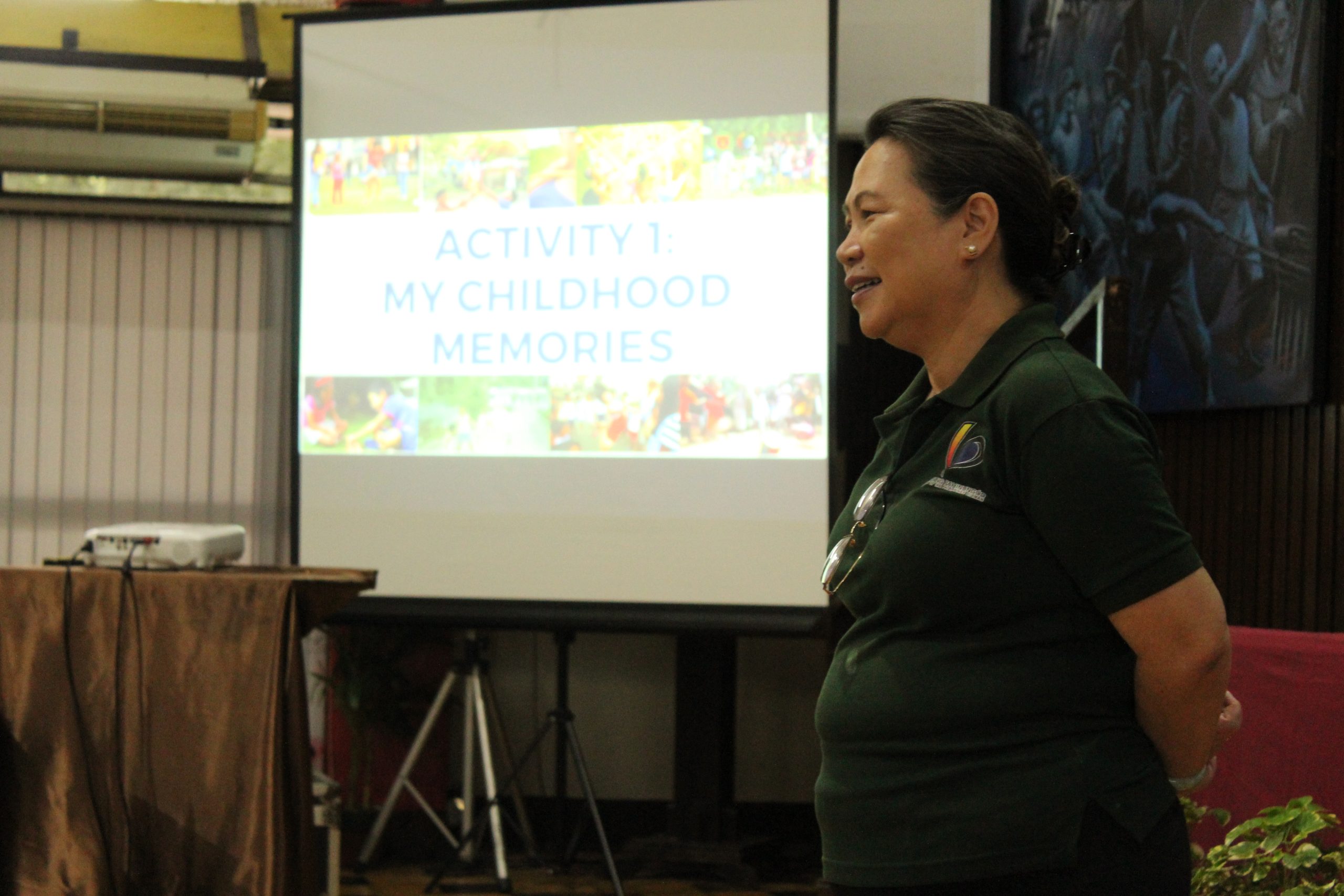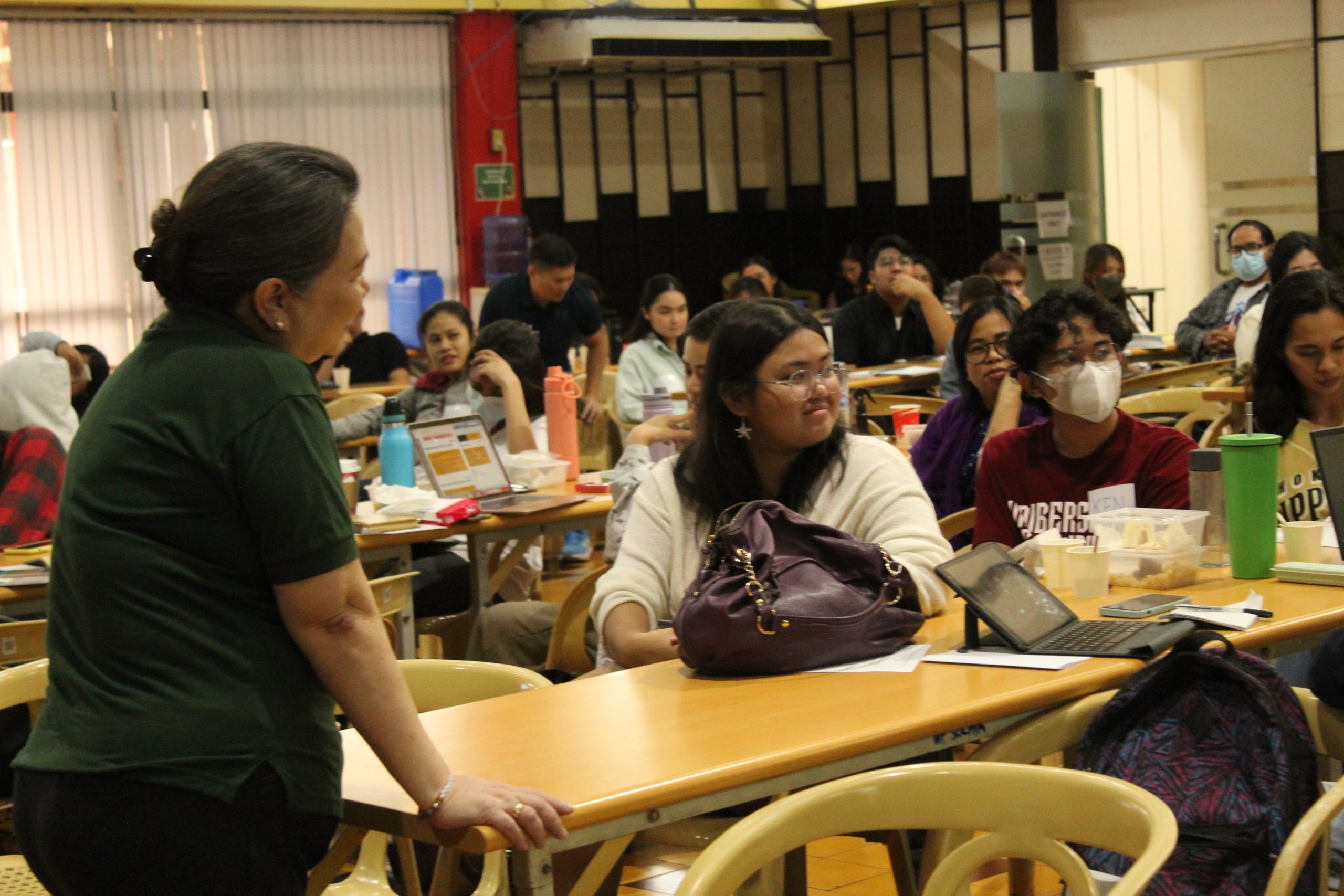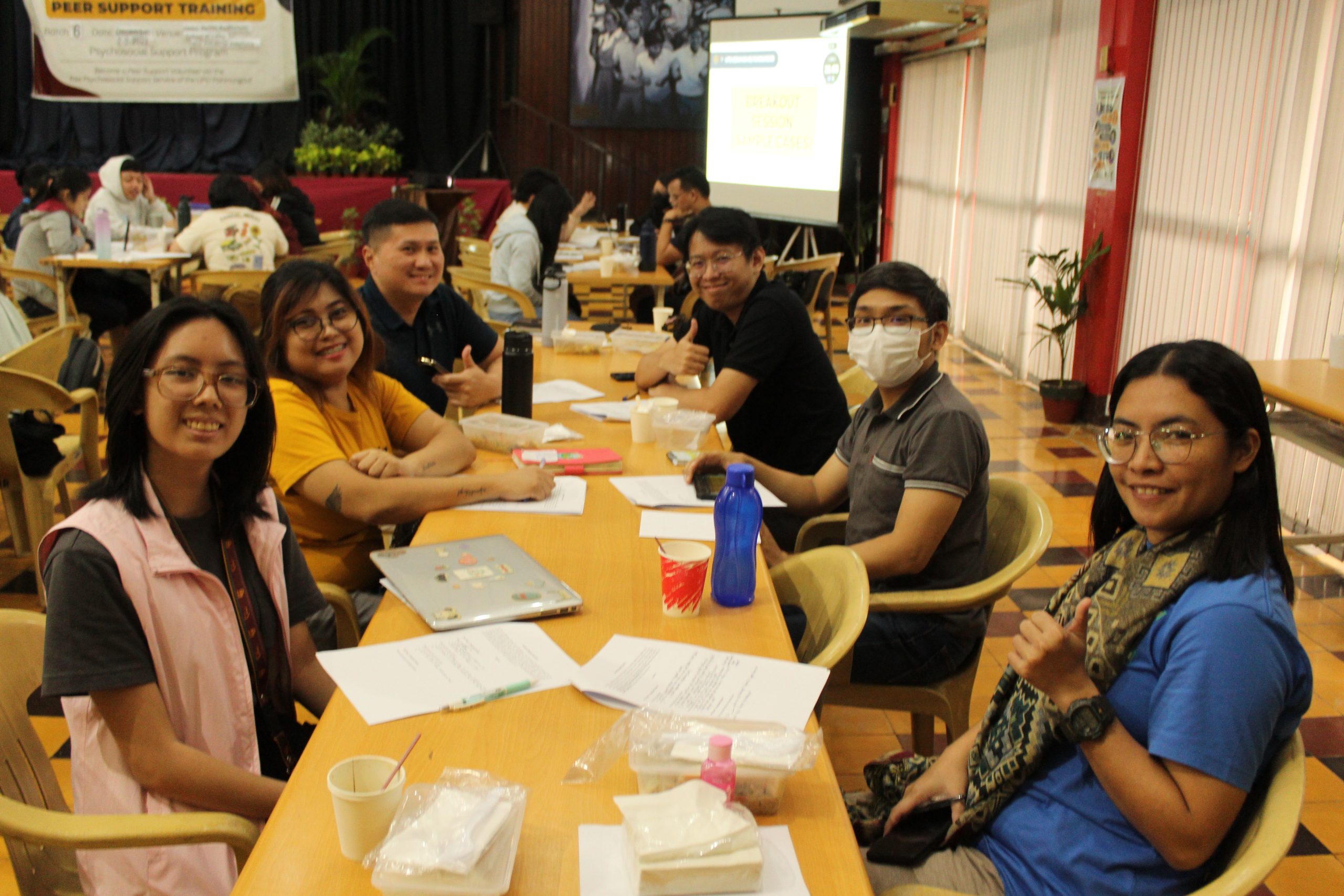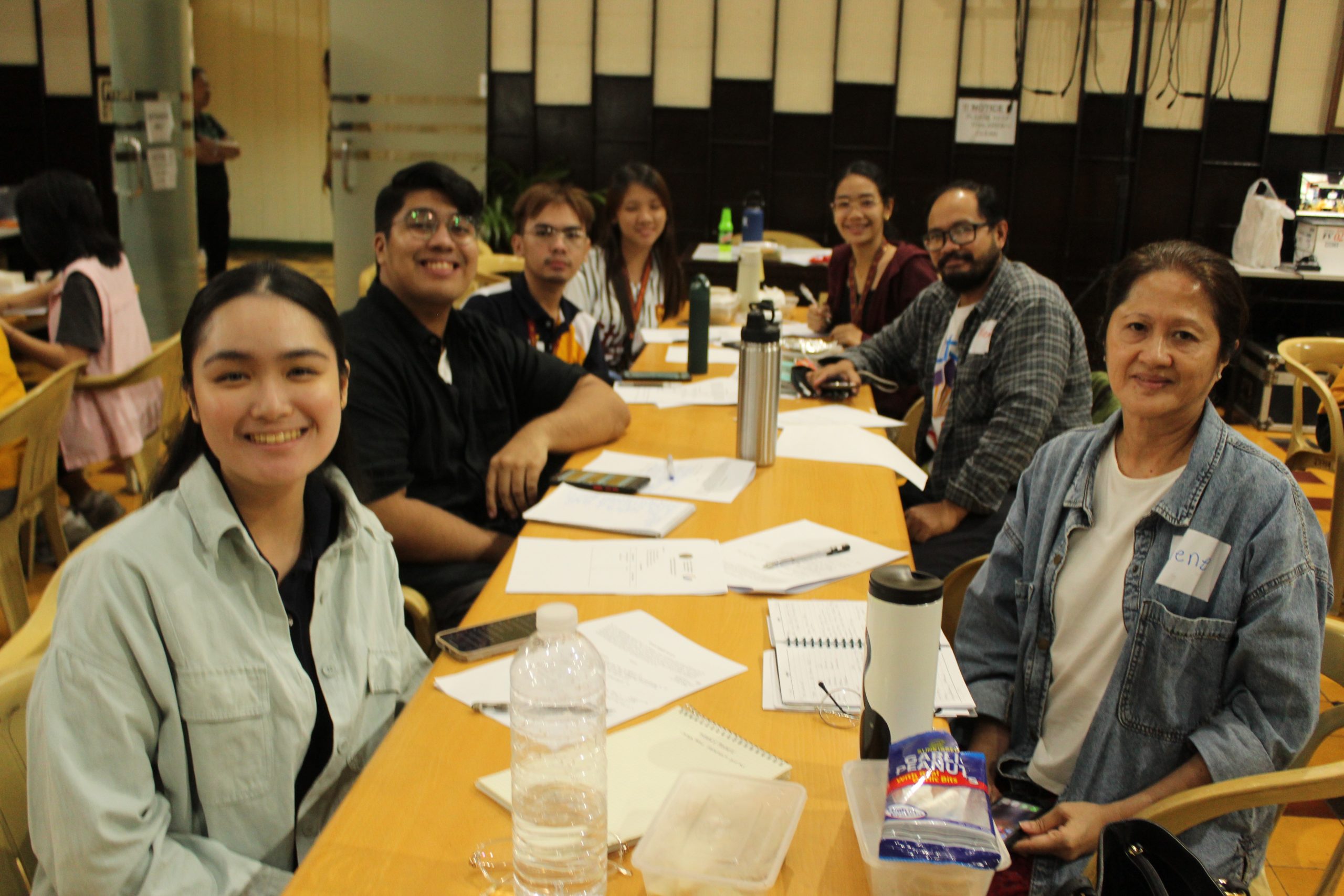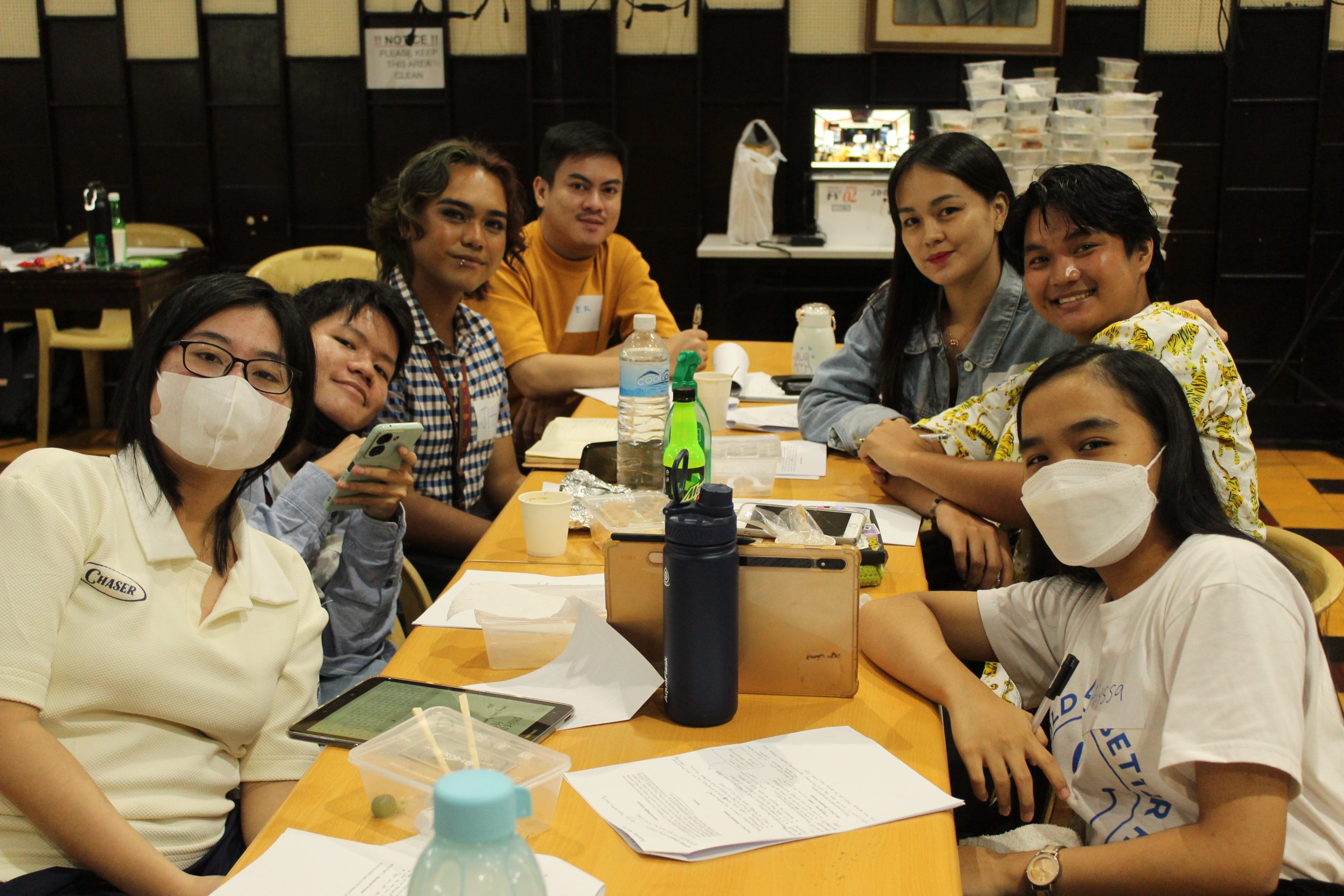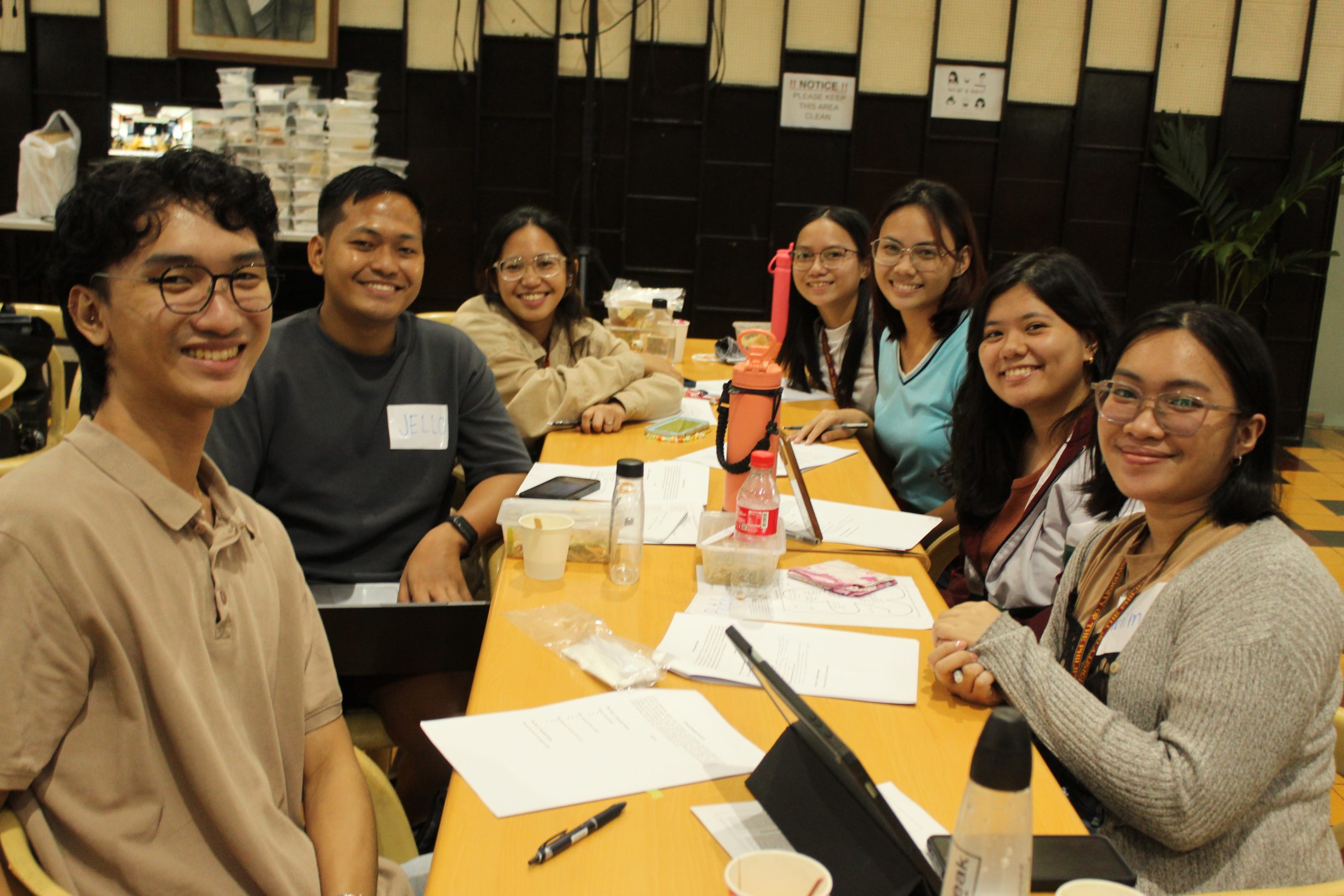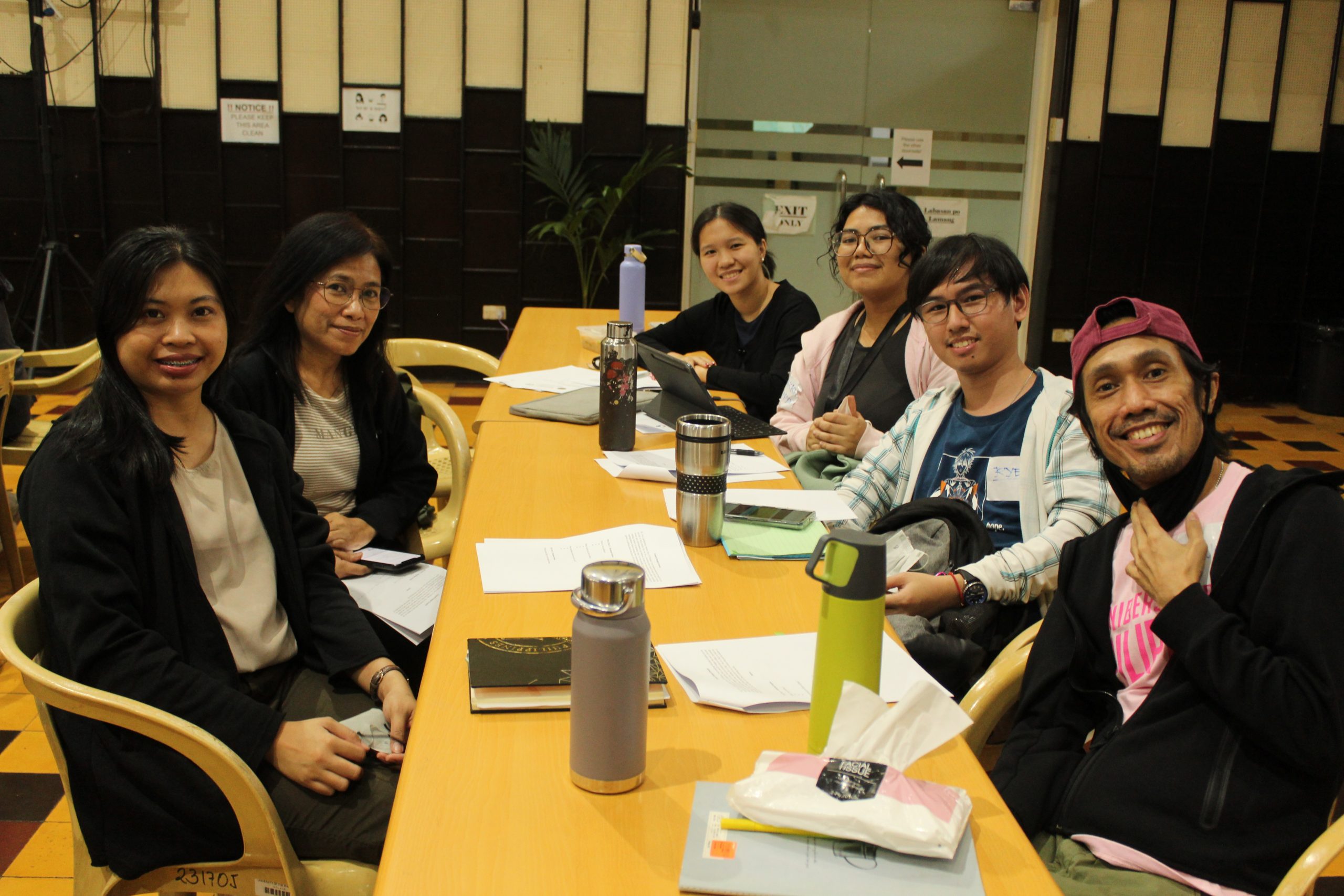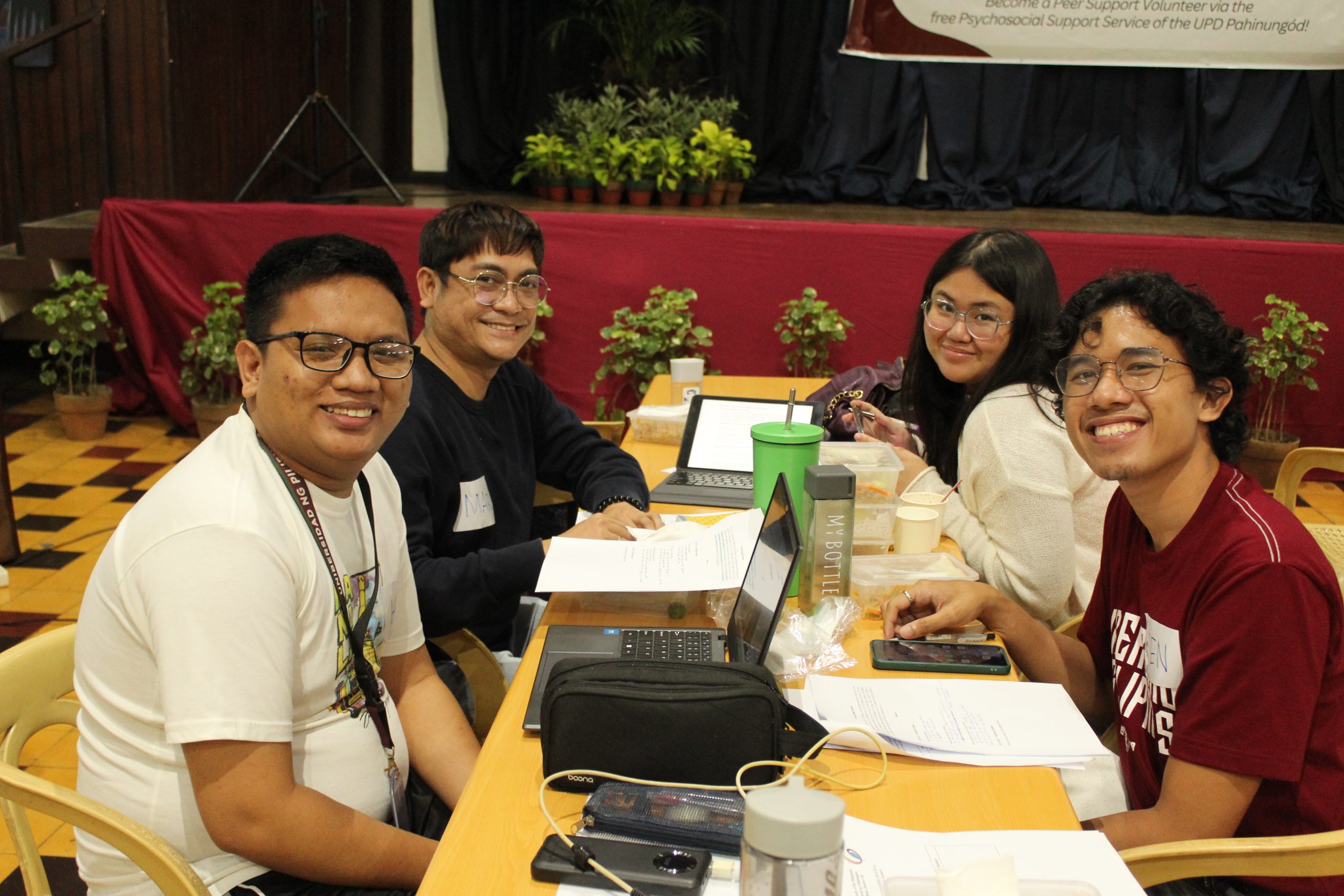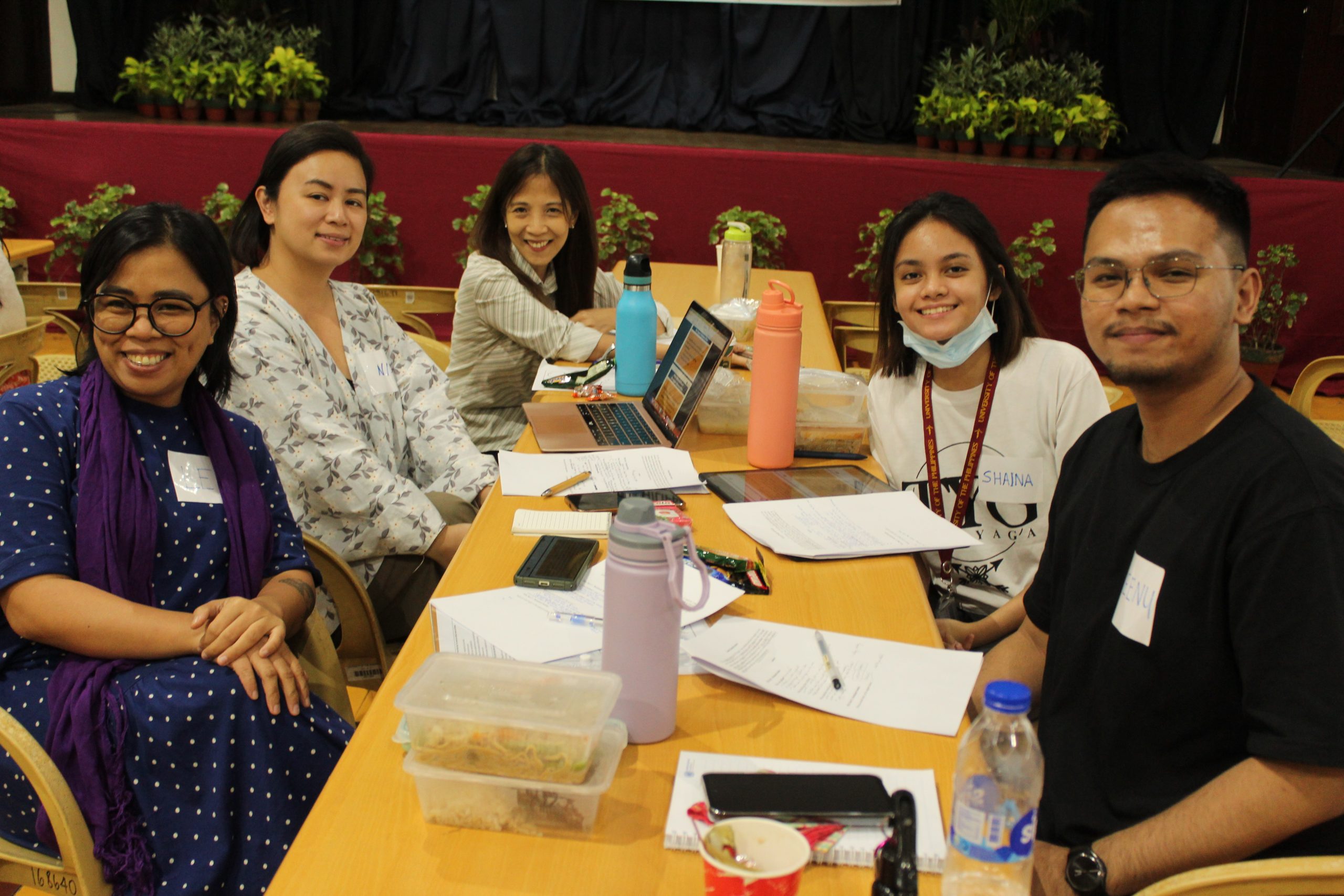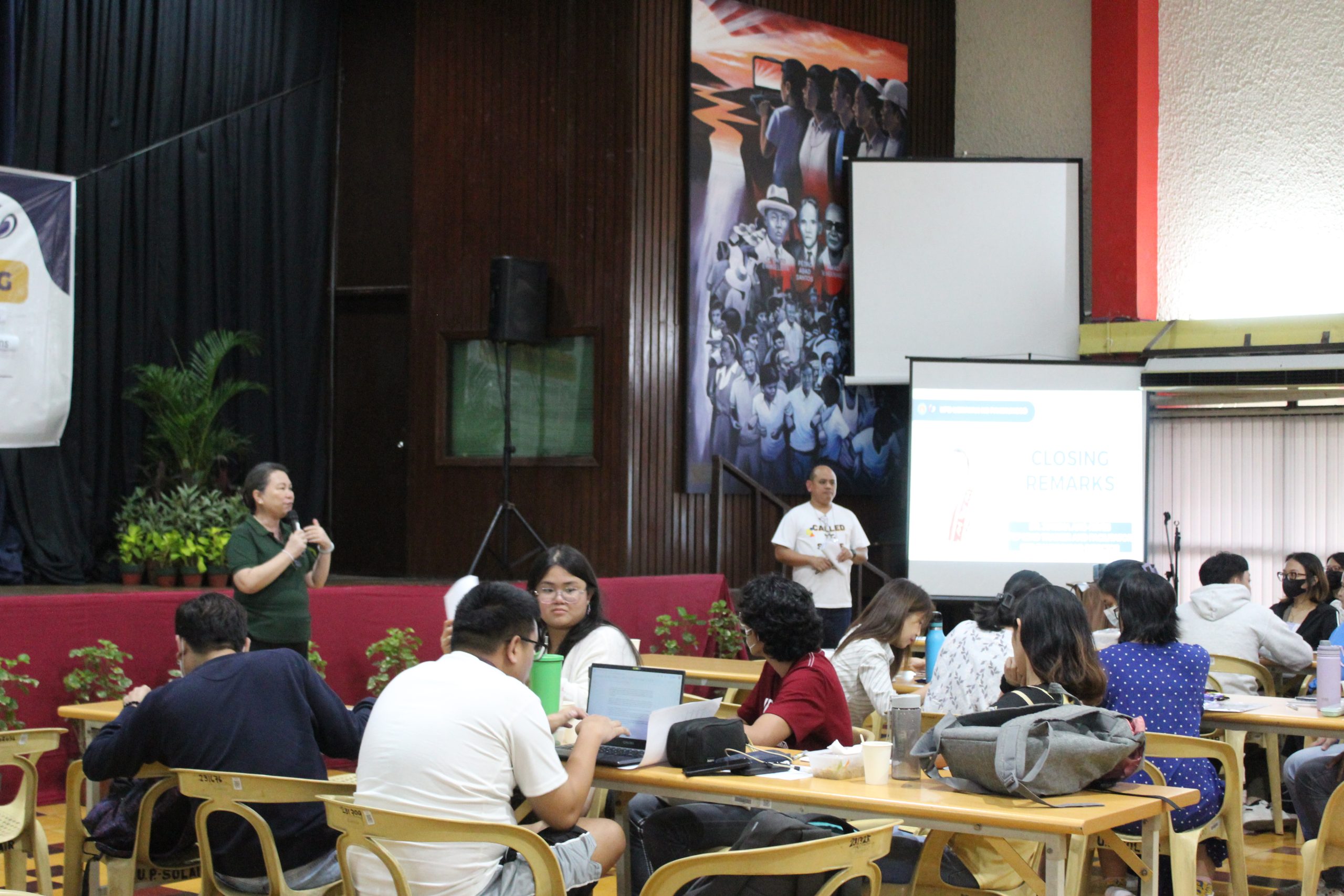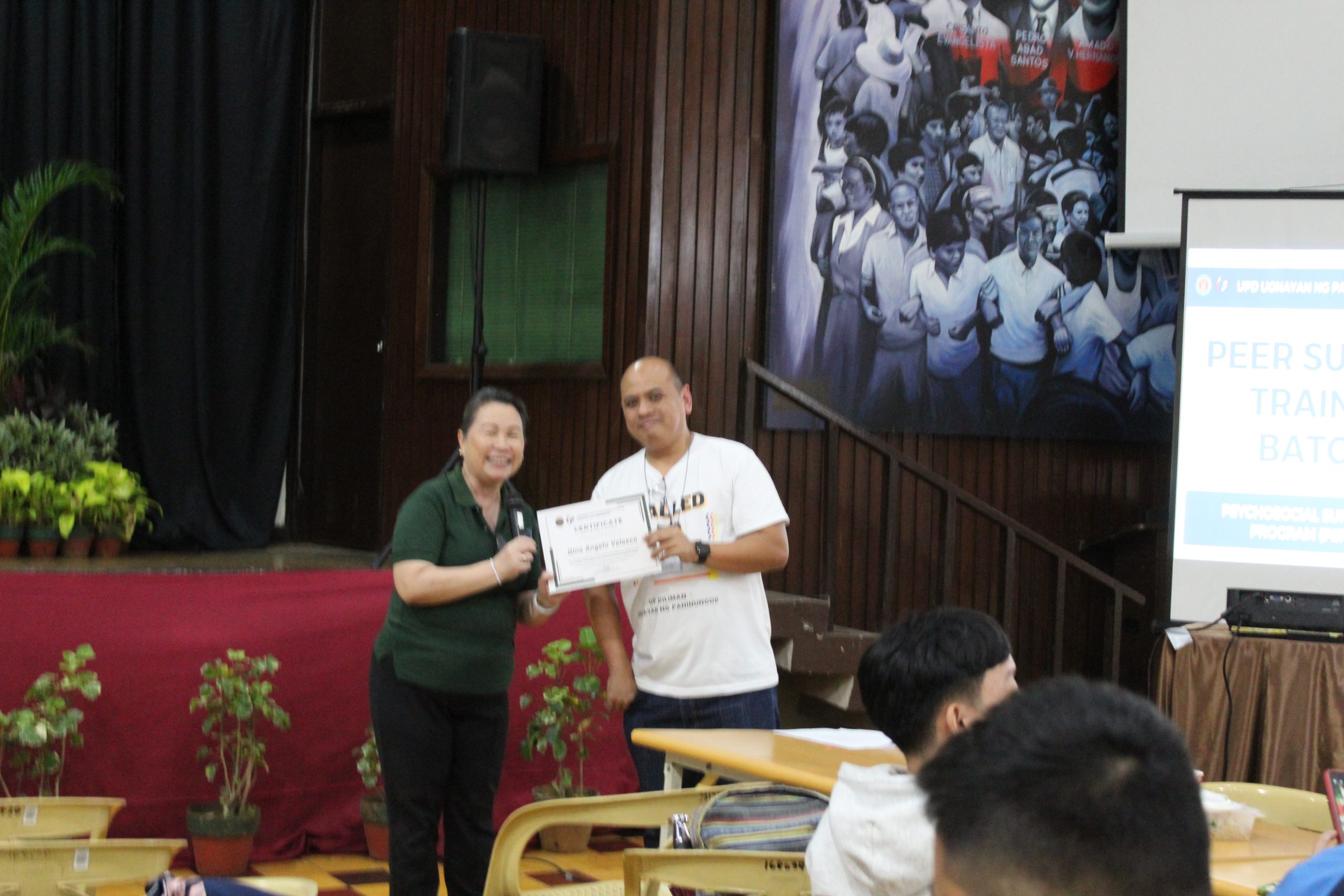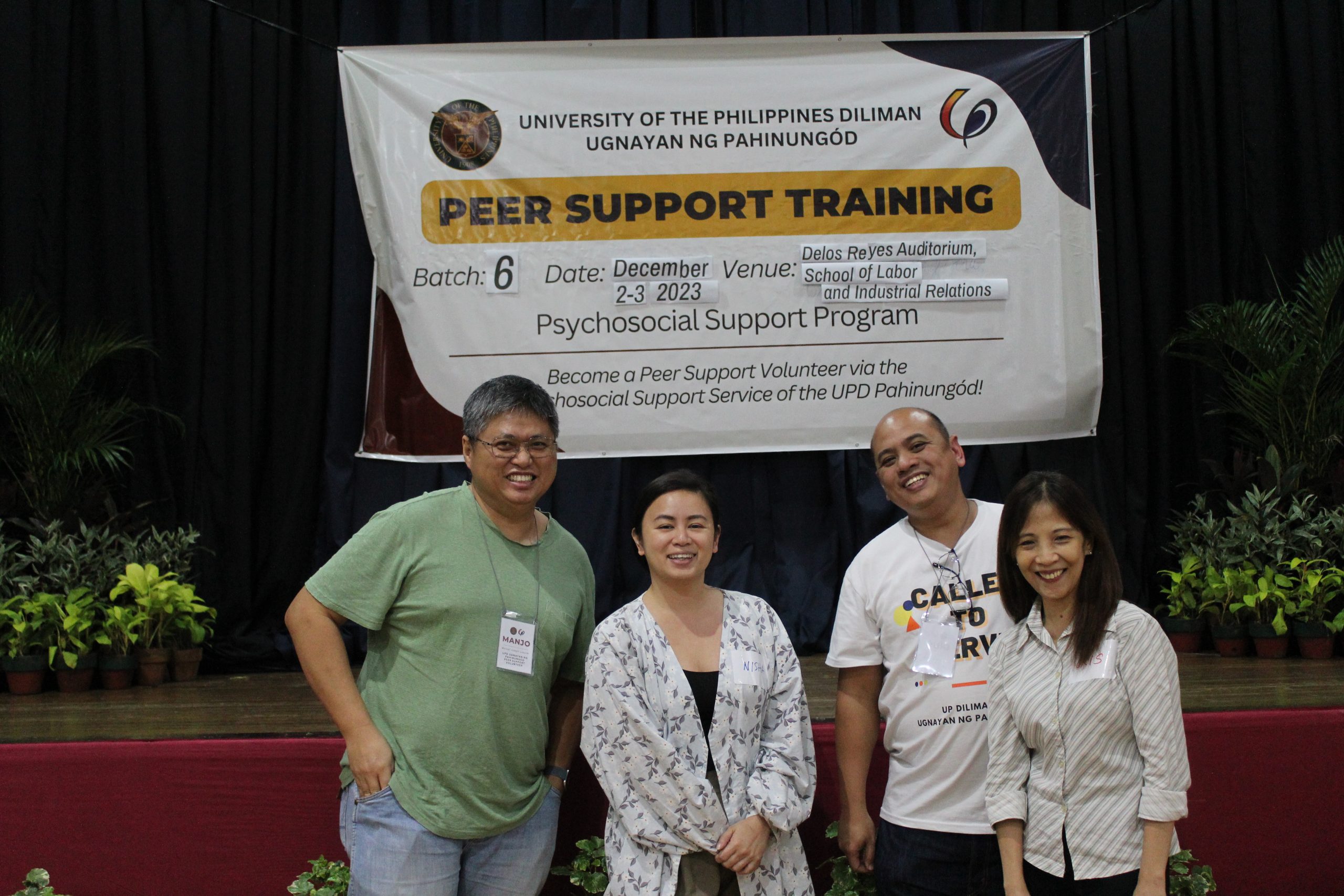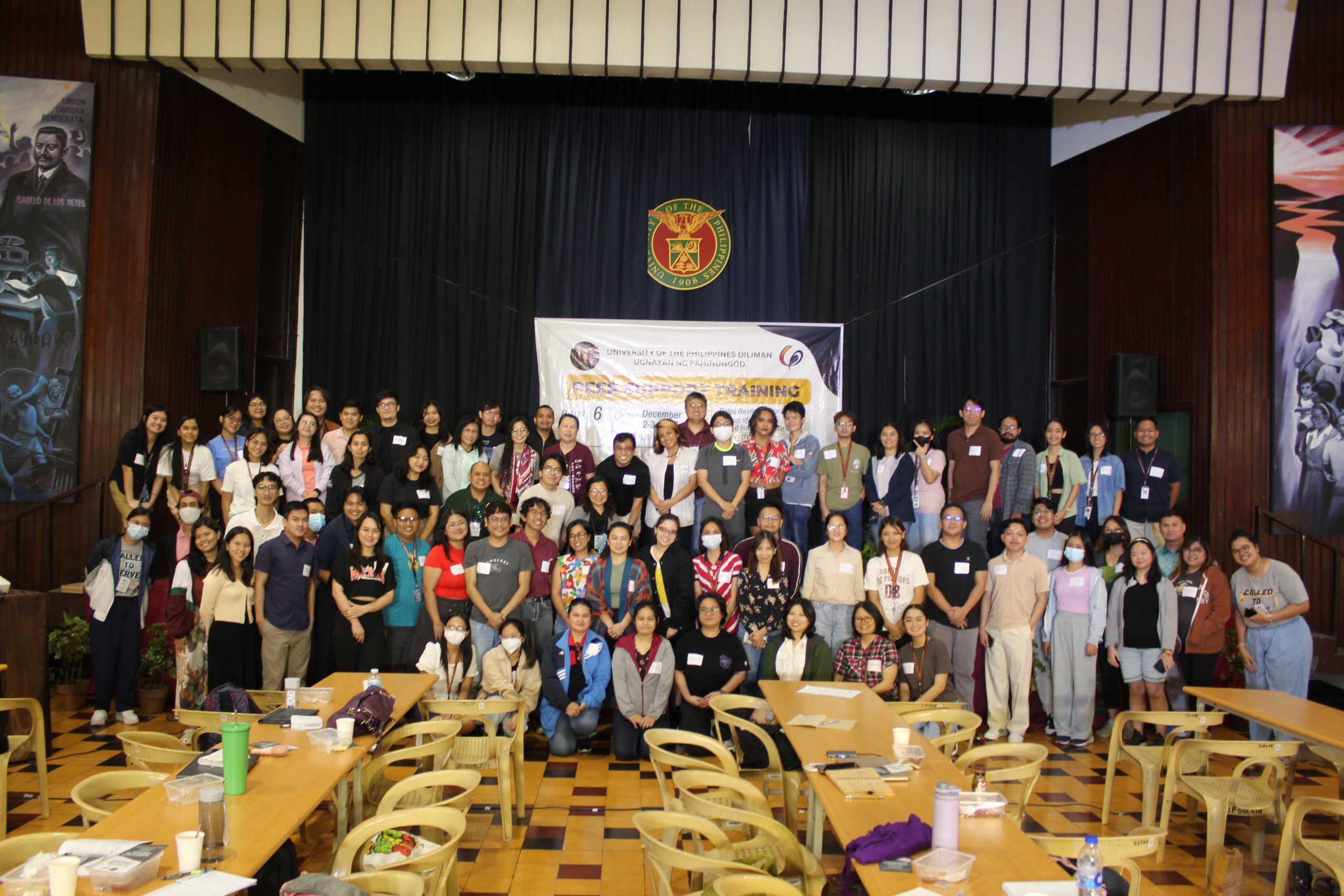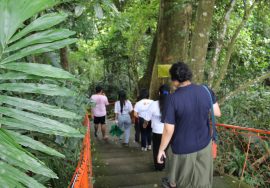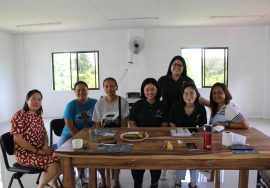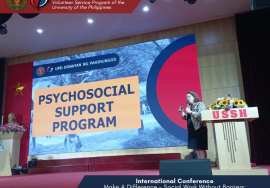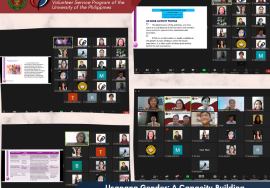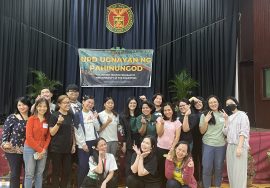In efforts to continue delivering a comprehensive capacity-building training program for the students, faculty, and staff of the UP community to become prospective Peer Support Volunteers, the UPD Ugnayan ng Pahinungod held another Batch of the Peer Support Program. The Peer Support Training aims to equip Peer Support Volunteers with a solid foundation in basic psychosocial support, including Psychological First Aid (PFA), Community Resiliency Model (CRM), and Case Management. Moreover, the program fosters the integration of wellness practices for oneself and others in the UP community.
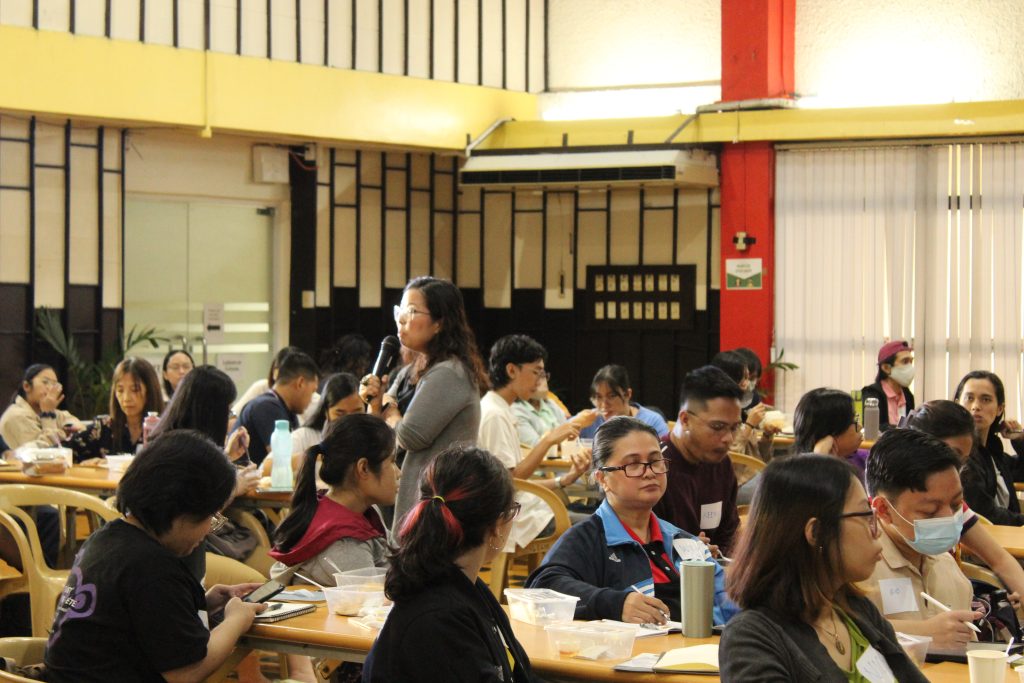
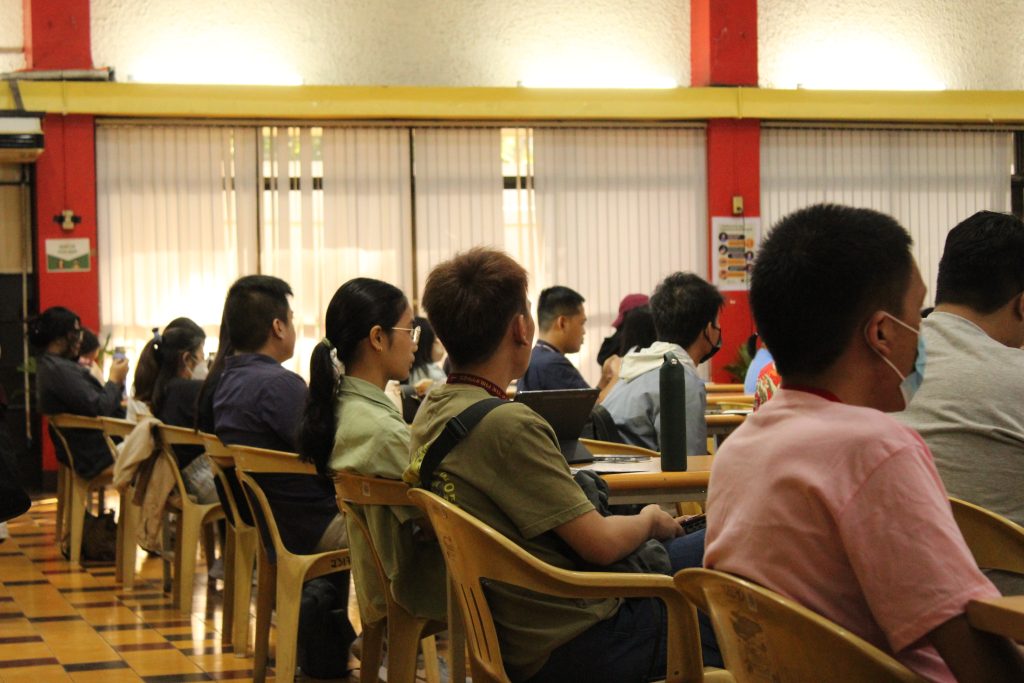
The first day for the 6th batch of the Peer Support Training under the Psychosocial Support Program was held last December 2, 2023, at the De Los Reyes Auditorium, School of Labor and Industrial Relations, University of the Philippines, Diliman. Consisting of 68 students, faculty, staff, REPs, and alumni from the UP community, the training aimed to supply the participants with relevant knowledge and skills to provide compassionate assistance and guidance to support seekers who are experiencing emotional distress. The event was assembled by the UP Diliman Pahinungod Team, as spearheaded by Junior Project Associate, Gia S. Evangelista. The session was divided into various modules, split into the morning and afternoon sessions to effectively tackle various aspects of psychological first aid.
The first day of the event was hosted by Dr. Gino Angelo Velasco, one of the program’s faculty Peer Support Volunteer Trainers from the Institute of Mathematics, College of Science which formally commenced at 8:00 am. A warm and inspiring welcoming remark was given by UP Diliman Chancellor Atty. Edgardo Carlo L. Vistan II, followed by a jolly warm-up exercise, set the tone for the rest of the day. Chancellor Vistan mentioned the brief history of the organization and its revitalization in the last few years. The chancellor expressed his appreciation to the individuals present, and the members and volunteers for their continued commitment and support to the efforts in service of the university and the UP community.
Once assured that spirits were high and that the participants were ready for the rest of the day, Sir Gino handed over the mic to Ms. Gia Evangelista to give a brief overview of the program and the training. Here, the Junior Project Associate details the aims of the program, the opportunities that lie ahead of the participants’ journeys, and the program’s achievements over the years. The overview gave the participants a concise outline of the outcome and impacts that the program has made and in turn, just how much they can contribute to the continuance of these goals.

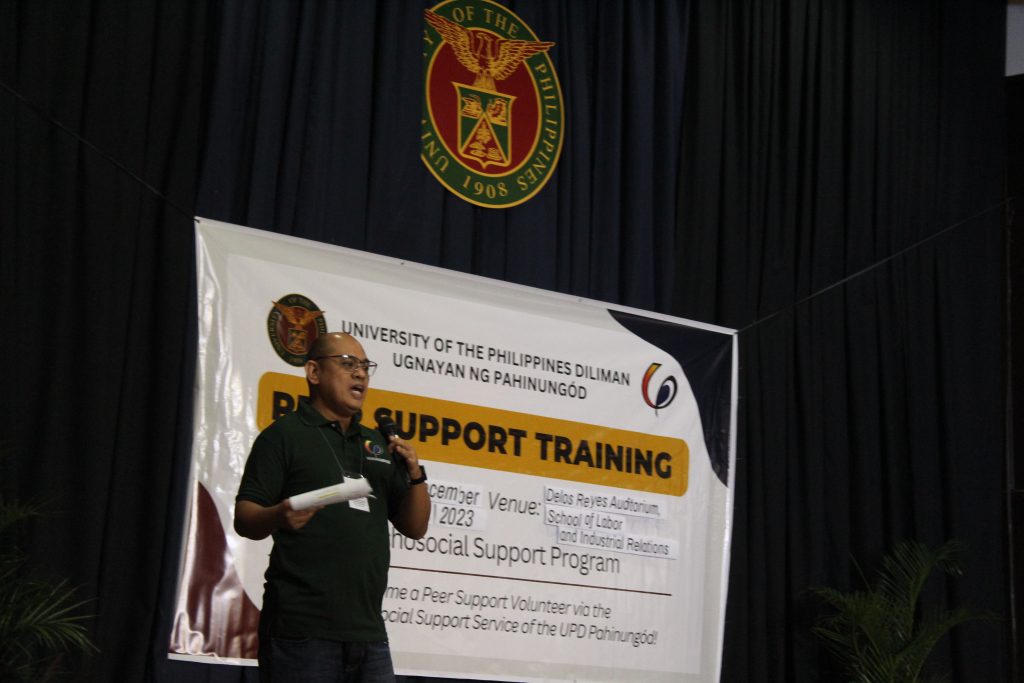

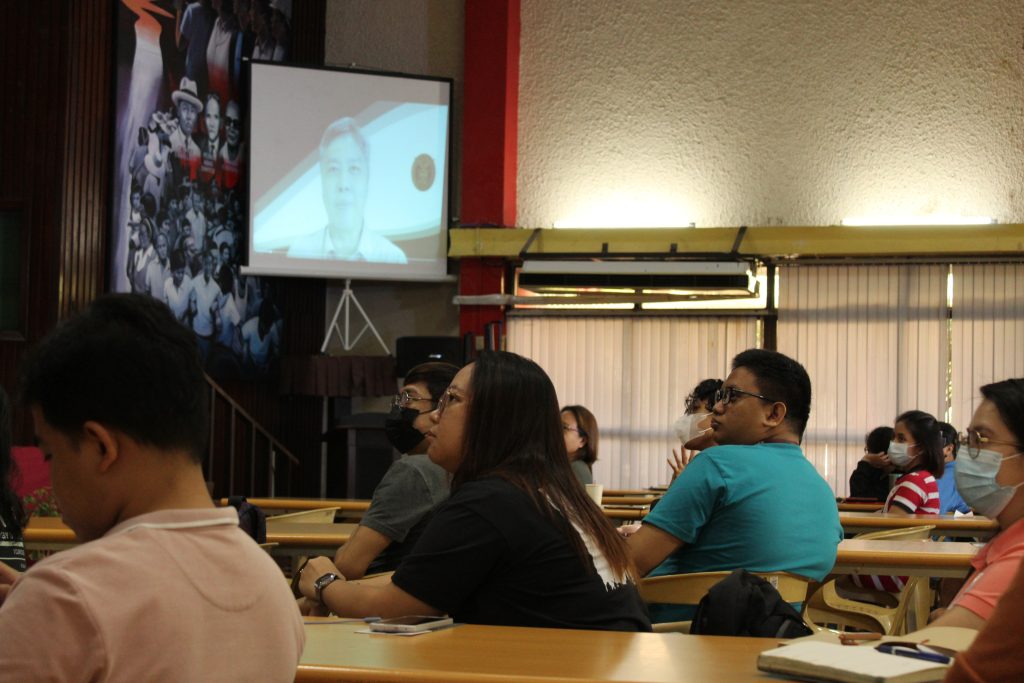
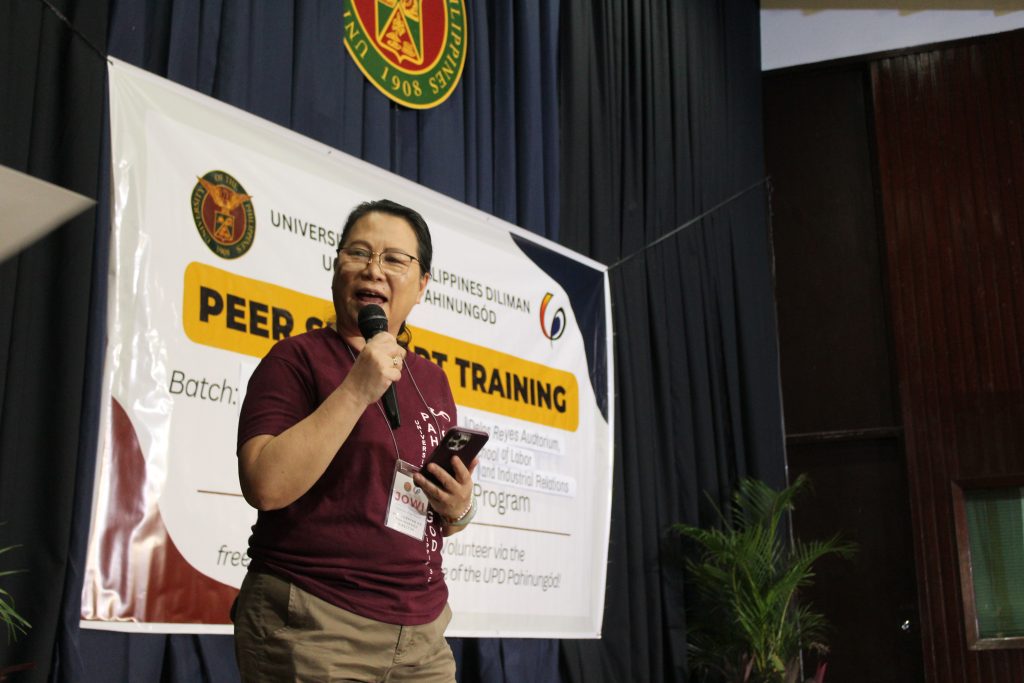
Following the overview, Sir Gino introduced the resource speaker of the first module: Psychological First Aid (Part 1 – The What, Who, When, Where, How of PFA). This module was led by Dr. Michelle Ong, one of the lead facilitators and trainers of the Psychosocial Support Program, which commenced from 9:00 to 11:00 in the morning. The module gave the participants the required foundational knowledge concerning psychosocial first aid which aims to stabilize, reduce symptoms, and return the survivor to their functional capacity in the aftermath of a distressing incident. Dr. Mitch also emphasized that the PFA is significantly different from psychological aid given by professionals. In addition, Dr. Mitch emphasized that Psychological First Aid aims to connect individuals with the necessary information, resources, services, and social support.
Additionally, for better facilitation of activities, PSV trainers Prof. Gino Angelo Velasco and Prof. Manuel Joseph Loquias, from the College of Science joined the event as facilitators. At the same time, Internal Support Volunteer Anna Lourdes Cruz aided with the registration and logistical tasks. Their efforts contributed to ensuring that the flow of the program was smooth and efficient for the participants.
To immerse the participants, Dr. Mitch instructed them to group themselves into small groups and answer the formulated questions. The participants enthusiastically discussed the problems, concerns, and worries that are most apparent in their communities, as well as how they would go about them. The facilitators assisted by answering questions that the participants may have, as well as aiding the group to pick out a member as a representative for their group. The plenary session allowed the participants to share their findings, analysis, and point of action. Furthermore, other groups also had the chance to listen to the insights given by their peers, and raise any questions, or concerns, or perhaps share their insights and experiences.
Afterward, the participants were also allowed to ask questions to Dr. Mitch, to which she gracefully responded to. During this time, other participants would also partake in the meaningful dialogue where they exchanged thoughts and experiences that were relevant to the points being raised.
Reaching the end of the morning session, concluded with a photo opportunity with the participants and Dr. Mitch Ong. Ending on a high, Dr. Mitch was also awarded a Certificate of Appreciation, as well as, a Plaque of Recognition for her dedicated service as a lead facilitator and a vital member of the UP Diliman Pahinungod Team. In addition, Dr. Gino Angelo Velasco and Dr. Manuel Joseph Loquias were also recognized for their efforts and were given the same Plaque of Recognition.
The participants then were given an hour to eat their lunch, converse with another, or use the bathroom if need be.

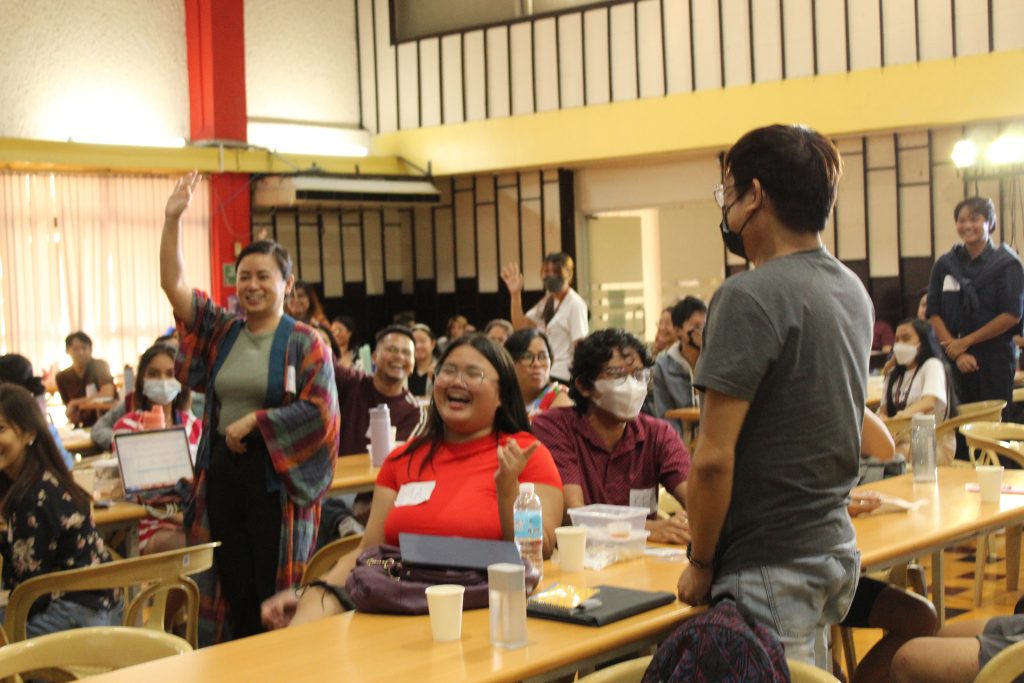
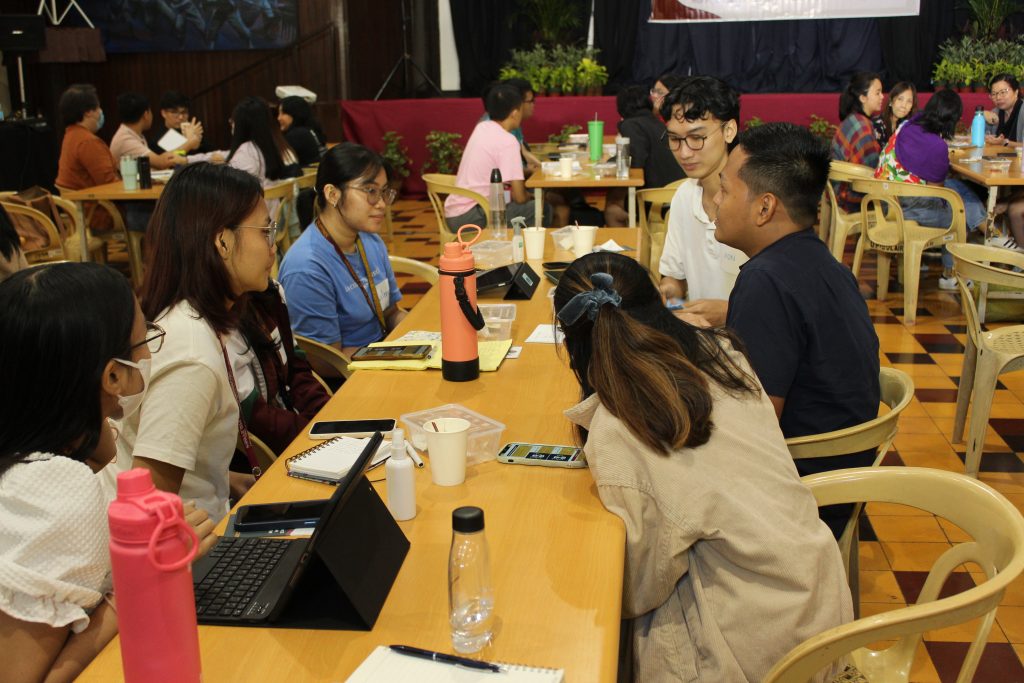
For the afternoon session, Dr. Gino Angelo Velasco checked in with the plenary and engagingly asked if they had any other questions with regard to the previous speaker. Collectively, the participants stated that everything was clear and thus, the session formally began the next part. In order to energize the participants, Project Staff Bianca Cipriano led the warm-up activity which was Guess the Gibberish. It is a word game where players try to decipher a phrase that sounds like gibberish but, when spoken out loud, sounds like a real word or phrase. The words given were connected to UPD Pahinungod or the training proper. This tested the participants’ retained knowledge during the first session, whilst at the same time, keeping an energized atmosphere. During this time, the participants used their teamwork and creativity to answer the questions and in the end, one team won and claimed the prize.
Dr. Gino Velasco then introduced the next speaker, Dr. Manuel Joseph Loquias, one of the program’s faculty Peer Support Volunteer Trainers, and also from the Institute of Mathematics, College of Science. In this afternoon session, Dr. Manuel Joseph Loquias discussed the topic of Psychological First Aid (Part 2 – The Action Principles of PFA). The session commenced from 1:00 pm to 5:00 pm, including a working break and a collaborative session with each group.
The main session discussed the action principles behind PFA, namely Look, Listen, and Link. Additionally, Dr. Loquias steered the discussion into giving concrete scenarios to which the principles can be applied, especially as peer support volunteers. In this session, it was emphasized that observing, listening, and empathizing with support seekers, can itself provide great relief and help to persons in distress. However, it was also mentioned that linking support seekers to information, and relevant services, and connecting them with existing support networks can greatly aid the clients.
The activity part of the session encourages the plenary to group themselves and brainstorm about a given scenario of a support seeker given to each group and among themselves find the problem troubling the support seeker, questions they would like to ask, as well as the possible response they could give. This activity aims to find the plenary’s readiness to handle persons in distress, as well as the manner in which they would respond accordingly. Facilitators were also available to answer questions that the participants had to ensure a clear understanding of the activity and flow of the program.
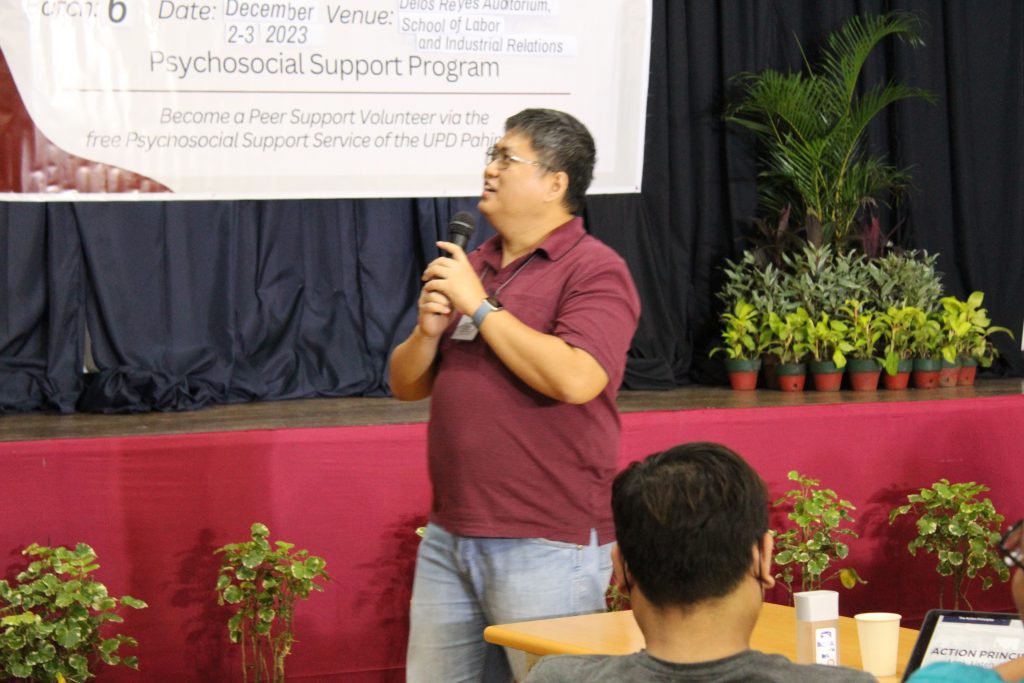
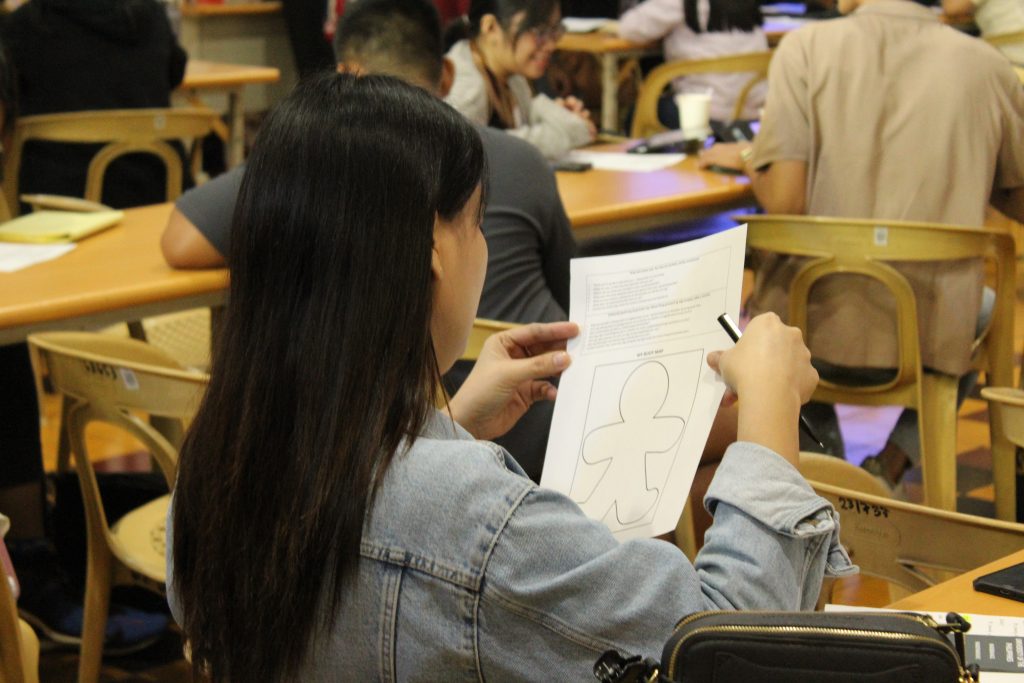
For the plenary session, each group elected a representative who would report their brainstorming to the rest of the participants. This allowed the participants to confer with one another and hear each other and their varying perspectives and ideas that could help them learn from each other. This time was also allotted to a question and answer session for the participants to ask the speakers of the first day and clarify any concepts that they may be confused about.
Once all the groups had presented and all questions were answered, Dr. Gino summarized the concepts given on this day and formally ended the first day of the Peer Support Training.
For the session evaluation, an overall score of 98.08% was given by the participants considering the event’s accomplishment of its goals, sufficiency of activities, knowledge of facilitators/speakers, relevance of session, provision of assistance, and organization of the event. The volunteers were able to have the opportunity to enhance their abilities to give quality and ample support as psychosocial volunteers.
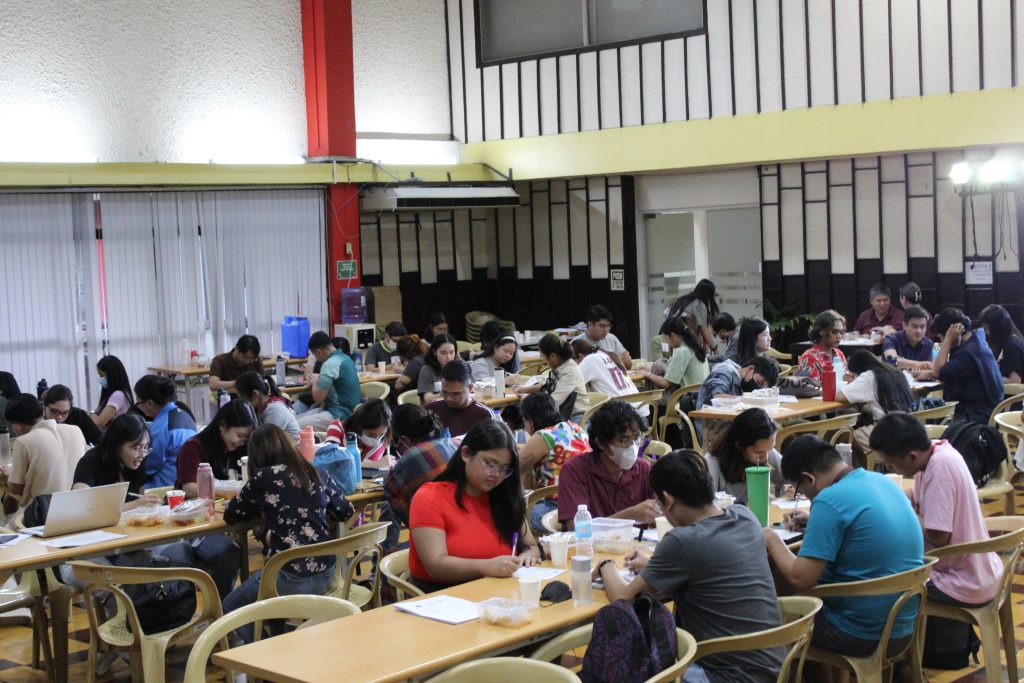
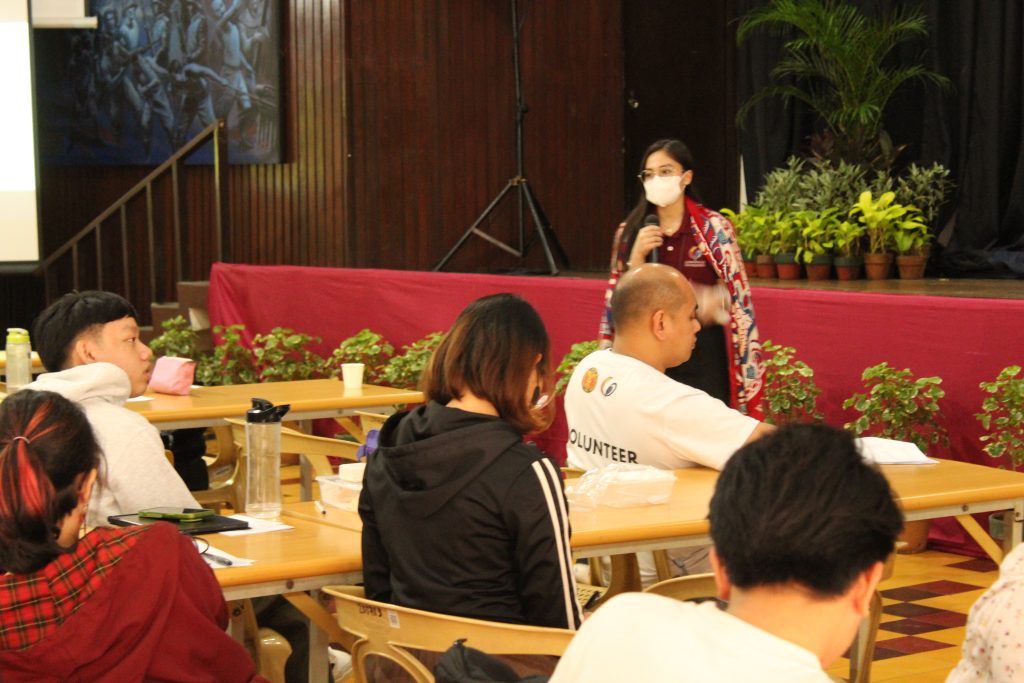
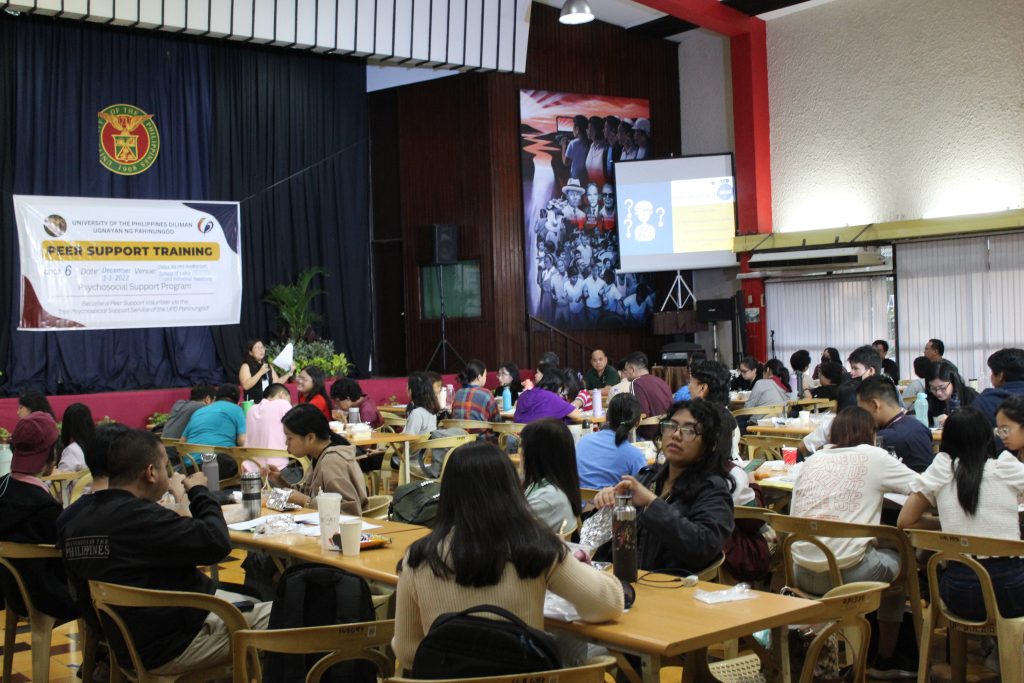
On December 3, 2023, the event continued on to the second day of the Peer Support Program Batch 6, with a focus on the Community Resiliency Model. Hosted by Dr. Manuel Joseph Loquias, one of our Peer Support Trainers from the College of Science, the session started with high energy. The training aims to equip the participants with the relevant knowledge and skills in basic psychosocial support. Consisting of 79 students, alumni, faculty, and REPS, the session commenced at the De Los Reyes Auditorium, School of Labor and Industrial Relations, University of the Philippines, Diliman.
To formally begin the session, Junior Project Assistant Tria Lucas gave a warm welcome to the participants, and a brief session recap that summarized the ideas, concepts, and learnings given by the speakers from the previous session. This aimed to give the participants a refresher and get them ready for the rest of the day. To ensure the focus of each individual, a warm-up exercise was led by the UP Pahinungod Staff to create a conducive and enjoyable atmosphere for learning and collaboration.
Dr. Manuel Joseph Loquias, the session’s host, then proceeded to introduce the next resource speaker for the session, Dr. Jowima Ang-Reyes, the current director of UP Pahinungod Diliman. Dr. Jowima Reyes discussed the Community Resilience Model: General Concepts and Wellness Skills.
These topics included understanding what basic mental health wellness means, what trauma may imply, how these trauma responses may manifest in the lives of our support seekers, and the proper manner in which psychological first aid may come into play. Additionally, Dr. Reyes also emphasized the importance of using a strengths-based approach wherein the participants are oriented towards seeing support seekers as fully capable human beings with strengths and capabilities that they can use in order to go back into healthy social functioning.

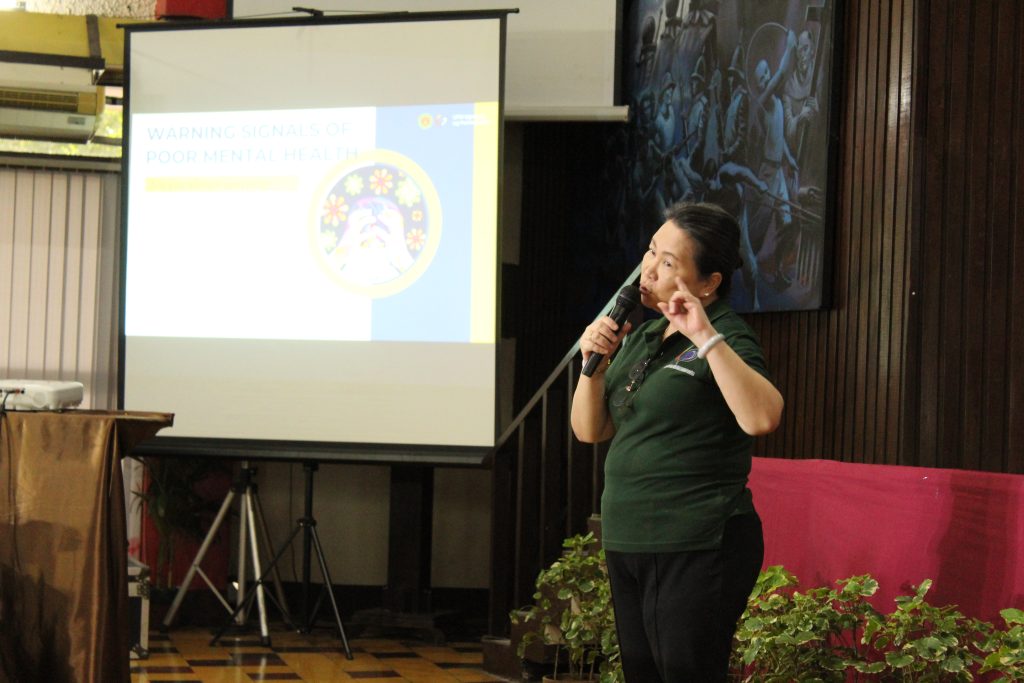
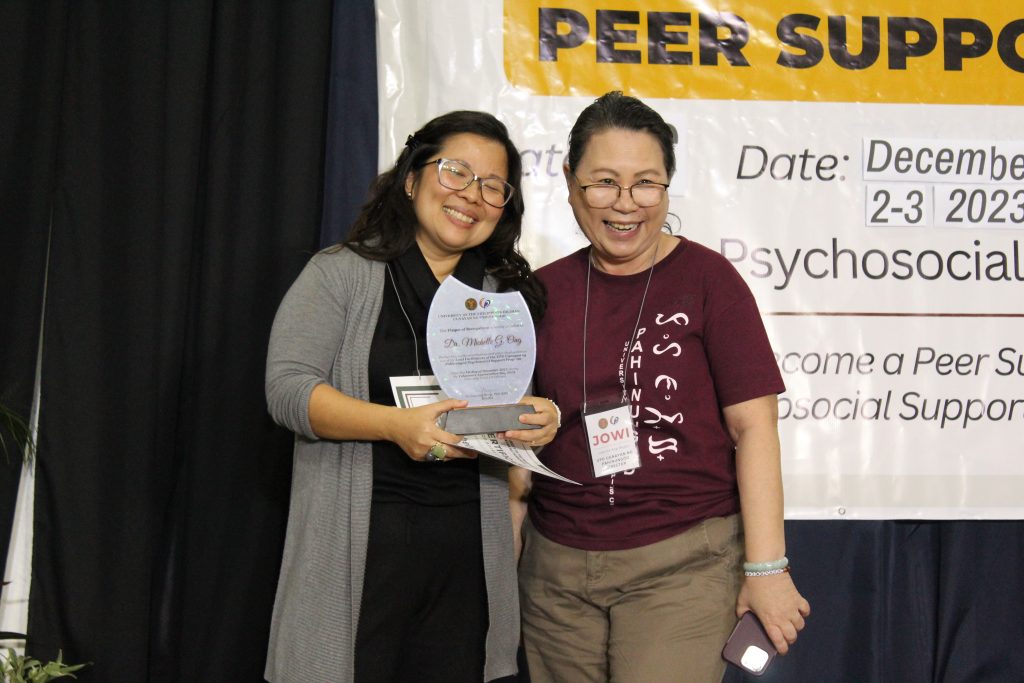
The participants were also shown concepts of CRM where the concepts of regulation and resiliency were introduced. The speaker emphasized that within the mission of the program, peer support training allows volunteers to learn CRM skills such as tracking of one’s own bodily sensations, resourcing tangible and intangible resources, grounding techniques, gesturing or spontaneous movements, as well as help now strategies. These strategies included immersive activities that allowed the participants to practice and concretize what was being taught. This ensures that the participants are able to relate with the possible support seekers and have an understanding of the peer support process.
Following the discussions on the concepts and learning outcomes drawn from the lecture sessions, the participants needed to be equipped with the psychosocial peer support service protocols and processes. The last session of the day was given by Ms. Gia S. Evangelista, Junior Project Associate and focal person for the Psychosocial Support Training Project.
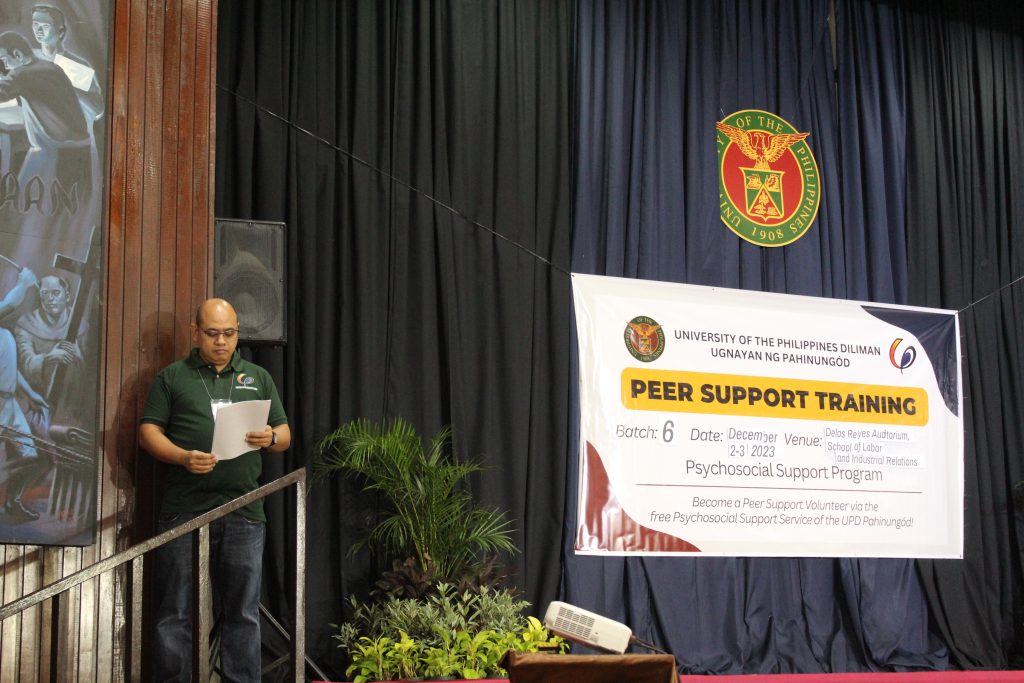
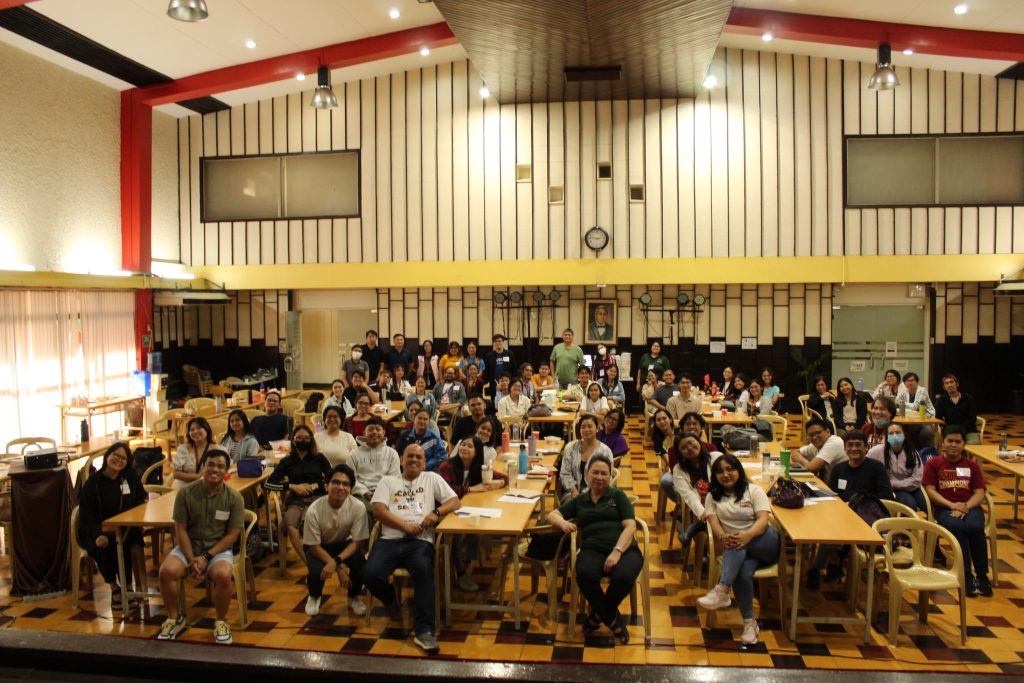
In this latter part of the program, the concrete steps, responsibilities, and roles of the peer support volunteers are given and discussed. Topics included establishing the rights of the support seekers under the Data Privacy Act of the Philippines as well as protocols such as putting the Pahinungod staff as BCC in all emails between support seekers and PSVs. This is to ensure that all parties are safe and proper support is being provided. The timeline to which the PSVs must reply to support seekers was also given as well as possible scenarios that the participants may encounter during the support program. Furthermore, the protocols of how and when to close the helping process are also established, as the parameters with regard to such.
As Ms. Gia closed this session, time was also given to the participants to ask any questions they may have throughout the day, or perhaps from the day before. The participants showed enthusiasm and asked insightful questions as well as gave their reflections and insights with regard to the program. With that, Dr. Manuel Joseph Loquias called for a quick photo opportunity and formally closed the session with a warm thank you to the speakers and the participants.
For the session evaluation, an overall score of 98.74% was given by the participants considering the event’s accomplishment of its goals, sufficiency of activities, knowledge of facilitators/speakers, relevance of session, provision of assistance, and organization of the event. The volunteers were able to have the opportunity to enhance their abilities to give quality and ample support as psychosocial volunteers.
